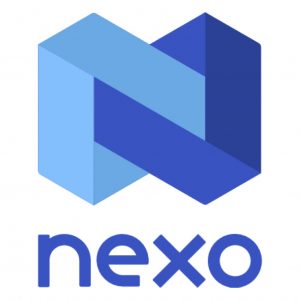In a world where personal information and data are the most common fraudulent attack, managing personal finances safely and securely is vital. While the concept might still be new to some, cryptocurrencies have actually been around for more than a decade. And as mainstream crypto adoption exponentially grows, so does the demand for a safe and secure place to store these digital assets. The best way to do this is by taking advantage of some of the best crypto wallets on the market. So in this article, we’re going to explore what crypto wallets are, why you need them and which ones deserve the privilege to house your finances.
What is a crypto wallet?
A crypto wallet is a place that safely and securely stores an individual’s cryptocurrencies. They function similar to how bank accounts work. The only difference is that with crypto wallets, users have access to their private keys. This enables users to become the custodian of their own funds. Wallets are essentially a safe place to store, manage and track an individual’s crypto holdings and they can come in both physical and digital forms.
How do crypto wallets work?
Wallets generate ‘wallet addresses’ which act as a destination to send and receive funds. These addresses can be viewed as the equivalent of sort codes and account numbers in the traditional banking system. These addresses are necessary so that the sending party knows where to send a payment to. When a payment is made, the private keys and addresses associated with that transaction are cryptographically encrypted to prevent hacking and malicious activity. Once a transaction is complete, it is logged immutably on a blockchain.
Upon creation of a new wallet, users will be issued with an automatically generated seed phrase. This is a set of words that enables a user to recover their private keys if they lose access to their wallet. It’s very important that users take note of their seed phrase and keep it safe because if they do lose access to their wallet, without their seed phrase they will not be able to access and recover their funds.
How much do crypto wallets cost?
In most cases, crypto wallets are generally free. There are however physical wallets (cold wallets) that are available to purchase and are more secure than generic digital wallets (hot wallets). While the nature of using a wallet is typically free, users are still required to pay a network fee for using a blockchain for a transaction. This is known as a ‘gas fee’.
What are the different types of crypto wallets?
There are two main types of crypto wallets. These are hardware wallets and software wallets. Hardware wallets are physical wallets that look similar to a USB drive. These types of wallets are considered to be highly secure due to the fact that they are not always connected to the internet. This reduces the risk of a malicious attack. Software wallets are digital wallets that are similar to applications that can be downloaded onto your computer and mobile devices. These wallets are constantly connected to the internet, which means that they are technically riskier options than hardware wallets.
What should you look for in a crypto wallet?
The biggest factor when selecting a crypto wallet is whether it can support the cryptocurrency that you own. Not all cryptocurrencies are supported on every wallet. Certain wallets only enable you to store cryptocurrencies that are hosted on certain networks. For example, a wallet that can only store Ethereum ERC-20 tokens will not let you store a token that is not an ERC-20 token. If an attempt is made to send a cryptocurrency to a wallet that does not support said digital currency, it will be lost forever without the possibility to revoke the transaction.
The second factor that should be considered is the timeframe intended on storing said cryptocurrency. If an individual plans on investing for the long term or will be storing a substantial amount of value, it would be wise to use a hardware wallet. This is because they are generally more secure due to the fact that they are not always connected to the internet.
Finally, the last major factor to consider is security. When choosing a crypto wallet to house your funds, we want one that is secure without a history of previous hacks or malicious attacks. On top of this, wallets with two-factor or biometric authentication are always more secure than those without. In crypto, individuals are the custodian of their own funds. This means that they are solely responsible for managing their funds in a safe and secure way.
What are some good generic safety measures?
- Write down a paper backup of your wallet’s seed phrase
- Do not lose this or share it with anyone
- If you are attempting to store large amounts of value in your wallet, it’s a good idea to use a hardware wallet
- For wallets that require a password, use one that you do not use elsewhere
- Ensure that your passwords contain letters (caps and non-caps), numbers, and special characters
- It’s also important that your wallet has a PIN code to approve each transaction to prevent the possibility of fraudulent activities
So now that we’ve covered the basics of what crypto wallets are, why you need one, and how they work, let’s have an unbiased look at the ten best options on the market!
Best Crypto Wallets in 2021:

#10. MetaMask
MetaMask is mainly a browser extension wallet. While it can be downloaded onto mobile devices, it is mainly used on Chrome, Brave, and Firefox to bridge the gap between web applications and the Ethereum blockchain. This makes it possible to transact with cryptocurrency on typical websites. What makes MataMask good is that it is fully open source. This means that the code can be scrutinized, reviewed, and improved by the community to ensure security and constant improvement. MetaMask is one of the easiest crypto wallets to use for beginners and it has great support pages for when users encounter problems. However, MetaMask does have its downsides. Because it is mainly supposed to be used to interact with internet browsers, users’ private keys are always online. For some people, this poses significant security risks. While MetaMask facilitates a great way to transact in crypto with web applications, it wouldn’t be ideal to store large amounts of value indefinitely.
Pros:
- Open-source
- Easy to use
- Best way to transact with websites and web applications
Cons:
- Safety concerns
- Only supports ERC-20 tokens

#9. Crypto.com
The Crypto.com wallet is just one product that is included in the wider Crypto.com DeFi ecosystem. With the Crypto.com wallet, users have full control over their funds in an easy-to-use application that can store and manage over 100 different cryptocurrencies. On top of that, users can also earn interest on over 35 currencies with no lock-up terms and great yields. There is even a swap feature that enables users to trade their crypto directly in their wallet. Users’ funds are encrypted locally on their devices and protected by both Biometric and two-factor authentication.
Pros:
- Secure and highly trusted platform
- Low exchange trading fees
- Beginner-friendly
Cons:
- Geographical restrictions apply
- com is a centralized entity
- Supports a limited number of cryptocurrencies compared to competitors

#8. Nexo
Nexo is a unique platform that allows users to earn significant interest on their cryptocurrency holdings. Interest rates vary, but investors can expect to earn between 6%-12% APR on their investments. On top of that, Nexo also enables users to take out crypto collatorised loans. This is a great feature because it means that investors no longer need to sell their assets if they are in need of quick capital. Nexo is ideal for long-term investors that want to maximize their gains and earn interest on their holdings.
Pros:
- Earn high yield interest on cryptocurrencies
- Comprehensive mobile application is super easy to use
- Advanced security features
Cons:
- Supports a limited number of cryptocurrencies

#7. BlockFi
BlockFi is very similar to Nexo in the sense that it allows investors to earn significant interest on their cryptocurrency investments. BlockFi also enables users to take out crypto collatorised loans. BlockFi and Nexo can be seen as nearly identical with minor differences to APY and user interfaces. When it comes to choosing between the two, it comes down purely to personal preference and geographical location.
Pros:
- Earn high yield interest on cryptocurrencies
- Comprehensive mobile and web applications
- No minimum balance is required to earn interest
- No maximum balance cap
Cons:
- Withdrawal times
- Interest rate charges
- Withdrawal fees

#6. Coinbase
Coinbase is primarily a cryptocurrency exchange however they do have their own crypto wallet that allows users to store over 500 different cryptocurrencies. Currencies that Coinbase supports include, BTC, ETH, USDT, USDC, LINK, and LTC. On top of that, Coinbase also has a chrome extension that allows users to use their crypto in a browser, similar to how MetaMask does, while their private keys are secured on their mobile devices. The Coinbase wallet is ideal for investors who consistently use the Coinbase trading platform.
Pros:
- Easy to use and get started
- One of the largest crypto exchanges
- Strong security track record
Cons:
- Extremely high trading transaction fees
- Common incidents of crashes and downtime

#5. Trezor
Trezor is the first hardware wallet included in this list. Trezor wallets can store more than 1,500 different cryptocurrencies offline and away from the malicious dangers of internet connections. These devices plug directly into your computers or smartphones. They are also compatible with the majority of devices and crypto applications and are one of the best choices for individuals in need of a hardware wallet.
Pros:
- Ultra-secure offline storage
- Supports more than 1,500 currencies
Cons:
- Complex for less tech-savvy people
- The initial purchase is expensive
- Previous customer service issues

#4. TrustWallet
TrustWallet is a decentralized mobile-only crypto wallet. It supports over 160 digital assets and allows users to sake certain cryptocurrencies to earn interest. TrustWallet was originally developed to only store ERC-20 tokens. However, it has since been improved to store other cryptocurrencies including Bitcoin, Litecoin, XRP, and Polkadot. Users can also purchase and trade cryptocurrencies through the native decentralized exchange integrated into the application.
Pro:
- Supports a wide range of cryptocurrencies
- Easy to use
- Mobile wallets are convenient
Cons:
- Less secure than hardware wallets
- Only available on mobile devices
- Constantly carrying mobile around poses security risks

#3. PTPWallet
PTPWallet is a crypto wallet that enables users to send crypto instantly, securely, and privately. Whereas most wallets only enable users to send and receive crypto payments via wallet addresses or QR codes, PTPWallet also enables users to send and receive payments via any platform they want. This is possible because of PTPWallet’s iTransfer feature. On top of this, PTPWallet can facilitate instant transactions, something not many other wallets can do. PTPWallet is also very flexible with outside API integrations which makes it ideal for companies looking to adopt a crypto white-label wallet and transaction platform. The platform will soon be integrating its own exchange which will provide users with a way to trade their funds in the same platform that they store them. This is convenient for users as it allows them to store, manage and trade their cryptocurrencies all under one trusted platform. PTPWallet has also expressed that the platform will house over 50 currencies throughout the coming months. This makes it one of the most comprehensive and easy-to-use crypto wallets on the market.
Pros:
- Instant transactions
- Easy API integrations
- Constant improvements and upgrades
- iTransfer feature enables users to transact with crypto in any way they want
- Each transaction requires entering a personal PIN code for extra security purposes
Cons:
- Currently limited support of 20 cryptocurrencies

#2. Ledger
Ledger wallets are hardware wallets that store users’ cryptocurrencies in an offline device. Ledger wallets are about the size of a USB flash drive and they connect to mobile devices or computers to gain access to stored digital assets. The devices are surrounded by a stainless steel case which makes them very durable. Ledger devices can support an outstanding number of cryptocurrencies and the platform even supports cryptocurrency staking so users can earn interest on their investments. Storing cryptocurrency on Ledger devices is one of the most secure ways to manage funds.
Pros:
- One of the most secure way to store and manage funds
- Supports over 1,800 cryptocurrencies
- Wallets include Bluetooth for easier connection to devices
Cons:
- Too complex for beginners and less tech-savvy people
- Very expensive

#1. Exodus
Exodus is a software wallet for laptops, desktops, and now mobile devices. The digital wallet offers an extremely easy-to-use and attractive user interface that provides access to multiple applications, including an exchange that enables users to trade directly in their wallets. Exodus automatically generates graphs and charts based on investors’ portfolios, which makes it super easy to track and manage funds. There is also no need for KYC verification and the wallet even provides users with live chart prices and updates which allows them to monitor and trade market movements all under one easy-to-use platform.
Pros:
- Supports a wide range of cryptocurrencies
- Integrates with hardware wallets
- High-quality and attractive user interface
- No KYC verification required
- Built-in applications, including an exchange
- Ability to stake cryptocurrencies and earn interest directly within the platform
Cons:
- No two-factor authentication
- Limited cryptocurrency support (compared to hardware wallets)
Which crypto wallet is right for me?
The best wallet for you depends on your needs, comfort with technology, and your goals. Beginners should consider starting with software wallets, like Exodus, PTPWallet, and Coinbase. These are easy to use and secure enough to be comfortable holding a small – medium-sized portfolio on. For more experienced users and those who need to store a significant portfolio, hardware wallets like Trezor and Ledger offer the best security and peace of mind. For companies looking to incorporate crypto transactions into their business model, PTPWallet is the best option due to their white label application and their ability to easily facilitate API integrations.
If you’re interested in downloading PTPWallet to store and manage your crypto funds, you can do so here.
If you’re a company looking to integrate crypto transactions into your business model, get in contact with us here.



